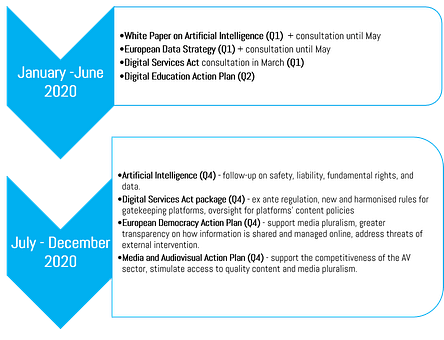Coronavirus conspiracies
In times of panic and fear, conspiracy theories have been known to crop up, and the latest outbreak of the coronavirus is no exception to this. Such hoaxes range from the idea that coronavirus was created in a Wuhan lab to the claim that Bill Gates had funded the coronavirus outbreak. What’s more, conspiracy theories have begun to merge with 5G reportedly being the cause of the outbreak. According to Wired, it’s important that we don’t mock conspiracy theories; jokes about conspiracies are strategically ineffective since “making fun of something online spreads the conspiracy just as quickly as sincerely sharing it would”. Moreover, as The Conversation writes, individuals who endorse conspiracies are less likely to follow health advice and more like to have negative attitudes towards prevention behaviour. In serious cases, conspiracies can also cause real harm to society, such as the racism experienced by East Asian communities since the outbreak.
How the EU plans to tackle disinformation over the next five years
EU DisinfoLab has summarised the European Commission’s digital strategy, which was released on 20 February. In case you missed it, you can read it here. Among the envisaged regulatory proposals, several are related to disinformation online, from addressing the business model of online platforms to safeguarding quality media. In light of this, here’s what’s in the pipeline for 2020:

In the news
- US Democratic presidential hopeful Mike Bloomberg continues to test the parametres of online political advertising by paying social media users to write positive messages about him, which resulted in Twitter removing 70 accounts for ‘platform manipulation’. Speaking to The Guardian, First Draft’s Claire Wardle shared her thoughts on Bloomberg’s unorthodox campaigning.
- A US court has ruled that the first amendment does not apply to private company YouTube. In this case, right-wing channel PragerU argued that YouTube was infringing PragerU’s rights by “censoring” its views via content moderation. Yet, “despite YouTube’s ubiquity and its role as a public-facing platform, it remains a private forum, not a public forum,” the court said.
Good reads
- Against the backdrop of the 2020 presidential candidates, a new The Mark Up investigation looks into how Google’s algorithm controls which political emails land in your main Gmail inbox. By signing up for email updates from most presidential candidates, the researchers found that only 11% landed in the main Gmail inbox, while 40% in spam, and the rest in Promotions.
- From coronavirus to the Australian bushfires, First Draft has reported on how misleading maps are distorting reality. In this context, exaggerated, outdated, or fabricated maps are being used for a multitude of reasons, including to sow fear and panic in society or overstate political support.
Studies
- A new study examines YouTube’s efforts to limit the spread of conspiracy theories on its platform. The researchers found that while YouTube has nearly eradicated some conspiracy theories from its recommendations, including claims that the earth is flat and that the U.S. government carried out the Sept. 11 terrorist attacks, other falsehoods continued to flourish. The New York Times has summarised this for us.
- Online Abuse toward Candidates during the UK General Election 2019 – This study revealed that online abuse mainly targeted a few high profile politicians. Abuse increased when politicians discussed topics such as borders and immigration. On average, male politicians received more general and political abuse, while female politicians received more sexist abuse.
Events and Announcements
- Facebook has announced that it will support research on misinformation and polarisation by donating $2 million to the research community – a move that has been met with raised eyebrows.
- 4 March @ Brussels, Belgium – How should Europe address gatekeeping platforms?
Jobs
- Google is hiring two Government Affairs and Public Policy Managers to be based in Brussels.


